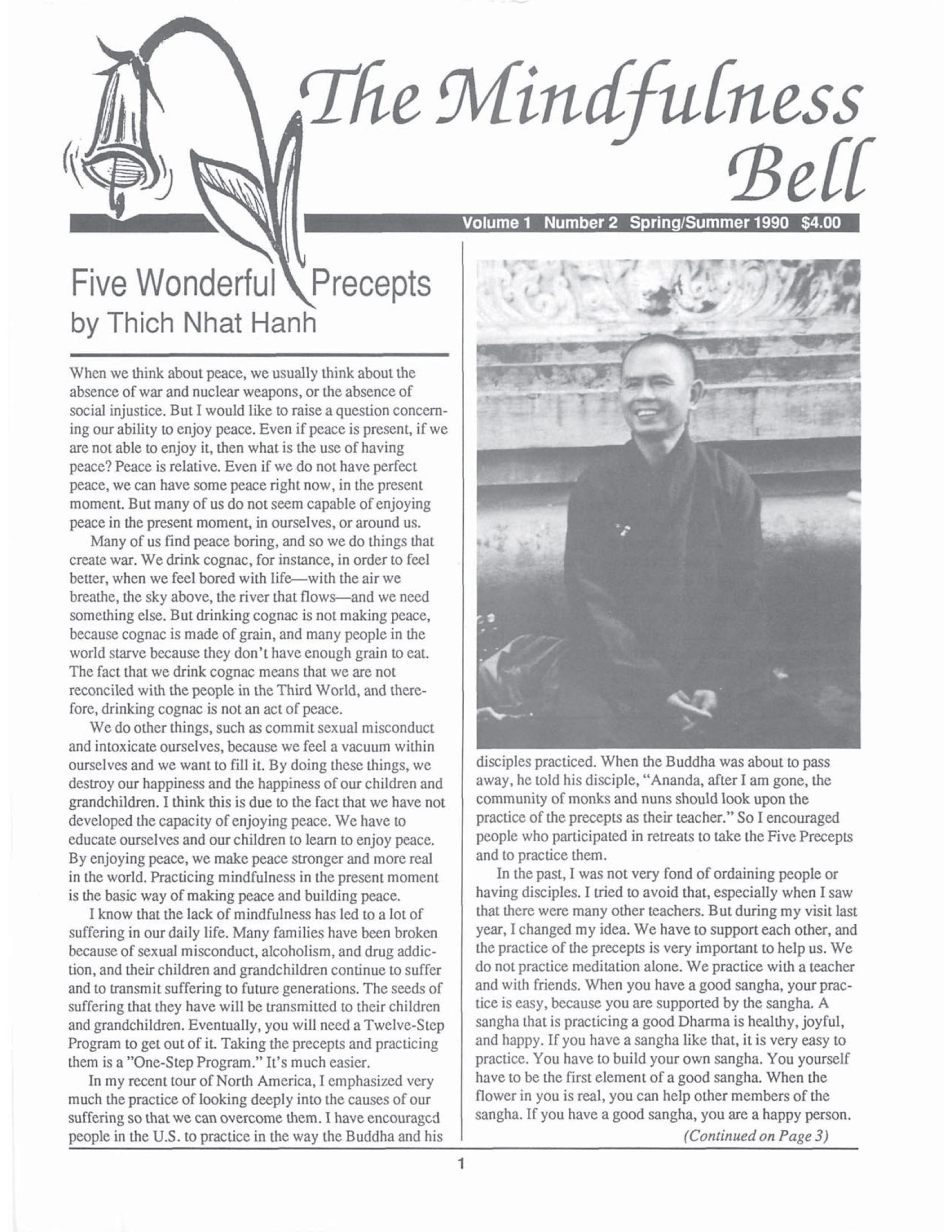By Barry Roth
Thay calls the Five Precepts good medicine to prevent suffering and enjoy health. Consider this psychotherapy vignette. A recovering alcoholic woman talks to me about the great pain and grief of her grown daughter. The woman and her first husband were actively drinking when they conceived this child, which forced their unhappy marriage. The woman’s second husband helped raise the girl. Later, this daughter would break into their home and steal things.
By Barry Roth
Thay calls the Five Precepts good medicine to prevent suffering and enjoy health. Consider this psychotherapy vignette. A recovering alcoholic woman talks to me about the great pain and grief of her grown daughter. The woman and her first husband were actively drinking when they conceived this child, which forced their unhappy marriage. The woman's second husband helped raise the girl. Later, this daughter would break into their home and steal things. Like her parents, she became alcoholic and over the years has been in and out of detox centers, or living on the street, begging or brawling, or in jail.
The mother, my patient, recently went with her Alcoholics Anonymous sponsor to plead with the court for leniency. Even though there were witnesses to the violent assaults, the girl maintained, "It's not my fault." My patient complained that her daughter had a bad attitude. Thay shows us that without understanding there can be no real love; that love in the Buddhist context means understanding. I simply asked my patient, "Can you understand your daughter?" The mother's first quick response was, "That's what they say in Alanon." After a brief silence, she blurted out, "Do you mean we should have used birth control?" Suddenly this woman realized that her daughter was an unwanted and unloved child.
The mother finally could look at her child with eyes of compassion. She saw her as pathetic, not dangerous or worthy of scorn and hatred. Even though her child could be paranoid, violent, and deceitful, this mother now understood that her girl was the saddest person she knew.
When we meditate, we realize the oneness of mind, body, and breath. We can see that our parents and ancestors want us to have peace, joy, and happiness. And we can see that our children and the unborn have the right to peace, joy, and happiness as well. Practice of the Third Precept— "Sexual expression should not take place without love and commitment"—and the Fifth Precept—“Do not use alcohol and any other intoxicants" would have helped prevent unnecessary suffering for my patient, her daughter, and everyone with whom they were in contact
Barry Roth is a psychiatrist practicing in Boston.

